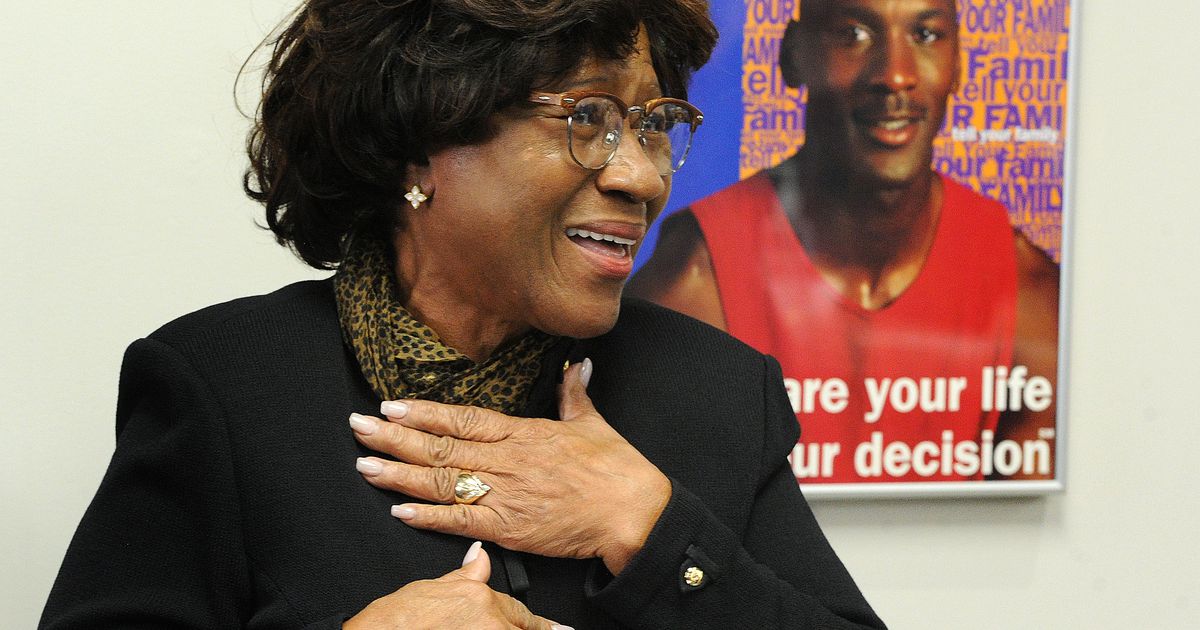Blood
Deloris Jordan, mother of Michael Jordan, promotes blood donations for Sickle cell disease
Deloris Jordan — mother of NBA great Michael Jordan —is encouraging African Americans to donate blood that can be used to treat patients of Sickle cell disease.
Jordan visited the Solvita Dayton Center on Thursday to discuss the local blood bank’s efforts in increasing minority blood donors.
“Our program goal was to increase Solvita’s minority blood donor pool from 3% to 8% by the end of 2024 through blood donation education, forming partnerships with neighboring organizations, and breaking down barriers and stereotypes surrounding blood donation,” said Alayna Maxon, chair of the Minority Blood Inclusion Committee at Solvita.
Sickle cell disease is a group of inherited red blood cell disorders, the Centers for Disease Control says, which causes a constant shortage of red blood cells, or anemia. Red blood cells contain hemoglobin, a protein that carries oxygen. Red blood cells are abnormally shaped in Sickle cell disease, causing the cells to die early.
Sickle cell disease can clog the blood flow when the abnormally shaped red blood cells travel through small vessels, according to the CDC. This can cause pain and other health problems such as infection, acute chest syndrome, and stroke.
Sickle cell disease primarily impacts people whose ancestors came from sub-Saharan Africa, South America, the Caribbean, Central America, Saudi Arabia, India, and Mediterranean countries such as Turkey, Greece, and Italy, according to the CDC. About one in 13 Black or African-American babies is born with sickle cell trait.
Dayton mayor Jeffrey Mims, Jr., as a former soccer and track coach, spoke Thursday of some of the challenges kids with Sickle cell disease face when playing sports. Mims also spoke about coaching a young Ron Harper in soccer, not basketball. Harper is a Dayton native and former NBA star who would later play alongside Michael Jordan and Scottie Pippen in Chicago.
Jordan visited the Solvita Dayton Center, meeting with Mims, Sickle cell disease patient Camron Rucker, and the Solvita Minority Blood Inclusion Committee to discuss progress in recruiting more African American donors for the better treatment of Sickle cell disease and other conditions requiring transfusions from donors with matching racial background.
Solvita has already increased minority blood donations from 4.8% to 6.2%, and is on track to continue increasing minority blood donations to 7% by the end of the year, Maxon said.
“Sickle cell takes a toll,” said Rucker, who is a Sickle cell patient at Dayton Children’s.
Jordan encouraged Rucker to continue persevering.
“You can overcome (the disease)…Camron, I want you think of overcoming,” Jordan said. He should set goals, Jordan said, continuing to encourage Rucker and those at Solvita that “nothing happens without hard work.”
Jordan also is visiting Ohio as she raises donations in the form of medical equipment from Midmark for the Kenya Women and Children’s Wellness Centre. The Wellness Centre was the inaugural project of the James R. Jordan Foundation. Jordan established the foundation in 2000 in honor of her late husband, James.
“Have hope,” Jordan said. “It starts within your head and your heart.”
Midmark has been a Solvita blood drive sponsor since 2011. Midmark hosts monthly employee blood drive on its Versailles campus and sponsors six community blood drives per year at the Knights of Columbus Hall.

